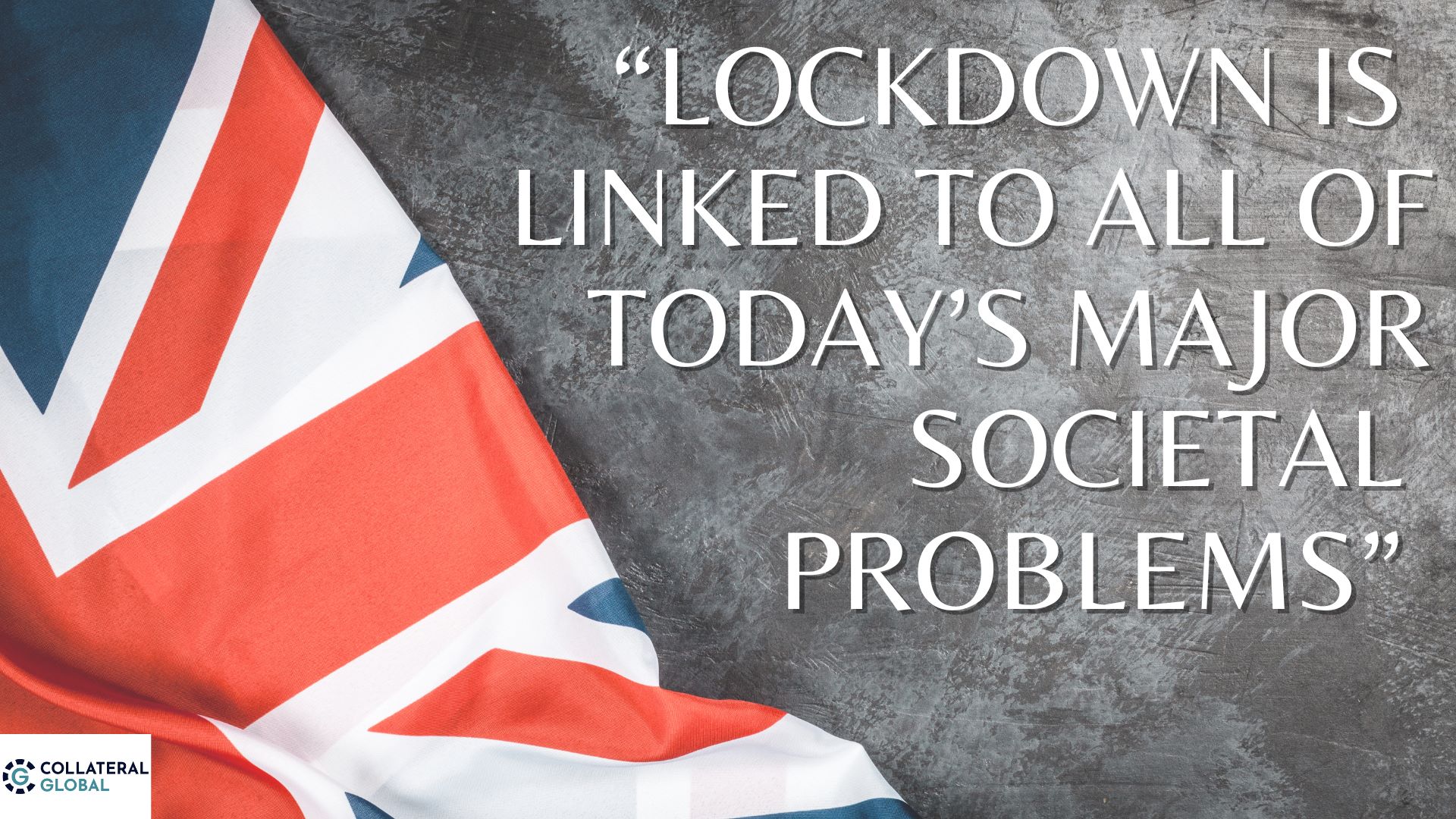“Lockdown is linked to all of today’s major societal problems,” one of the UK’s most influential politicians says.
One of the UK’s most senior and influential MP’s has blamed his country’s “major problems” on “poorly evidenced” covid lockdown measures.

In a candid interview to Collateral Global ahead of the release of his book – Kingmaker – later this month Sir Graham Brady, former Chair of the 1922 Committee of backbench MP’s, said:
“I believe the Covid response either caused, exacerbated or accelerated the major problems the government faces today – the hole in public finances after we borrowed 400 billion pounds to keep people home and help sustain jobs, the record National Health Service waiting list because so many routine treatments and diagnoses didn’t happen during the pandemic, the crisis in young people’s mental health, school absences and truancies, and the spike in inflation which started going up when lockdown ended. Covid lockdowns have had a very significant and lasting negative effect in almost every part of the country and every part of our lives.”
Sir Graham, who has now been appointed to the House of Lords, said it was within weeks of the first lockdown he realised the covid suppression measures – imposed to slow the spread of the virus and save lives – were not having the desired effect. He said:
“When the first problems arose with covid we didn’t know how bad it was, we didn’t know how infectious it was, and it was not unreasonable to take quite an extreme approach to trying to suppress the spread of the virus. But within about three weeks of the first lockdown, there pretty good data that showed levels of infection had started to fall before the lockdown. This suggested that lighter measures, hand washing, and I think frankly, just people being cautious in their own lives had started to have an effect in themselves.”
He added:
“At that point we also knew that covid, whilst it could be very serious for some people in some demographics, particularly older people, if they had comorbidities, wasn’t something as serious as, say, Ebola virus. So I think it would have been reasonable, even at that point, the end of March and into the beginning of April, to start some tentative opening up such as allowing outdoor markets to operate.
“And it seemed bizarre to me that here in Altrincham, I could go to Tescos and buy a bunch of flowers, but I couldn’t go to Altrincham market and buy a bunch of flowers outside because they’d been forced to close. So that was when I first started asking those questions. It was only just after we had come out of the first lockdown that my area was put back into so-called “additional restrictions” – which was effectively another lockdown. And that happened in a very arbitrary way. There was no logic to it, because we had lower levels of covid than neighboring local authority areas that were not put into additional restrictions. It was done for administrative convenience. It was pretty obvious that the restrictions that had been put in place didn’t actually work, and nonetheless, we then ended up with repeated cycles of lockdown, tiers, and additional restrictions. And the government was just ready to do it all again over Christmas 2021. And it was only the fact that 100, mostly Conservative MP’s, voted against the government on its so-called Plan B restrictions that made the government think again. And the great lesson from that was that when they didn’t introduce those restrictions that they had planned that winter nothing happened. There was no spike in covid.”
He added:
“The Chief Scientific Officer, the Chief Medical Officer, were in the public press conferences and they gave cover for decisions made. It was like having backup in the room. As things went on these individuals were not charged with balancing judgments. They were there only to talk about ways in which we might minimize the risk of covid spreading, and nobody asked them, or nobody gave anybody else the task of making a balanced, rounded judgment, which would look at the massive collateral damage that would be done in every other sphere of life, including non covid health outcomes, including mental health outcomes. And it was all too obvious at the time that these things were going to be massive problems, but they weren’t part of the decision making process.”
Sir Graham Brady’s new book, Kingmaker, is released this month and published by Bonnier Books UK.
